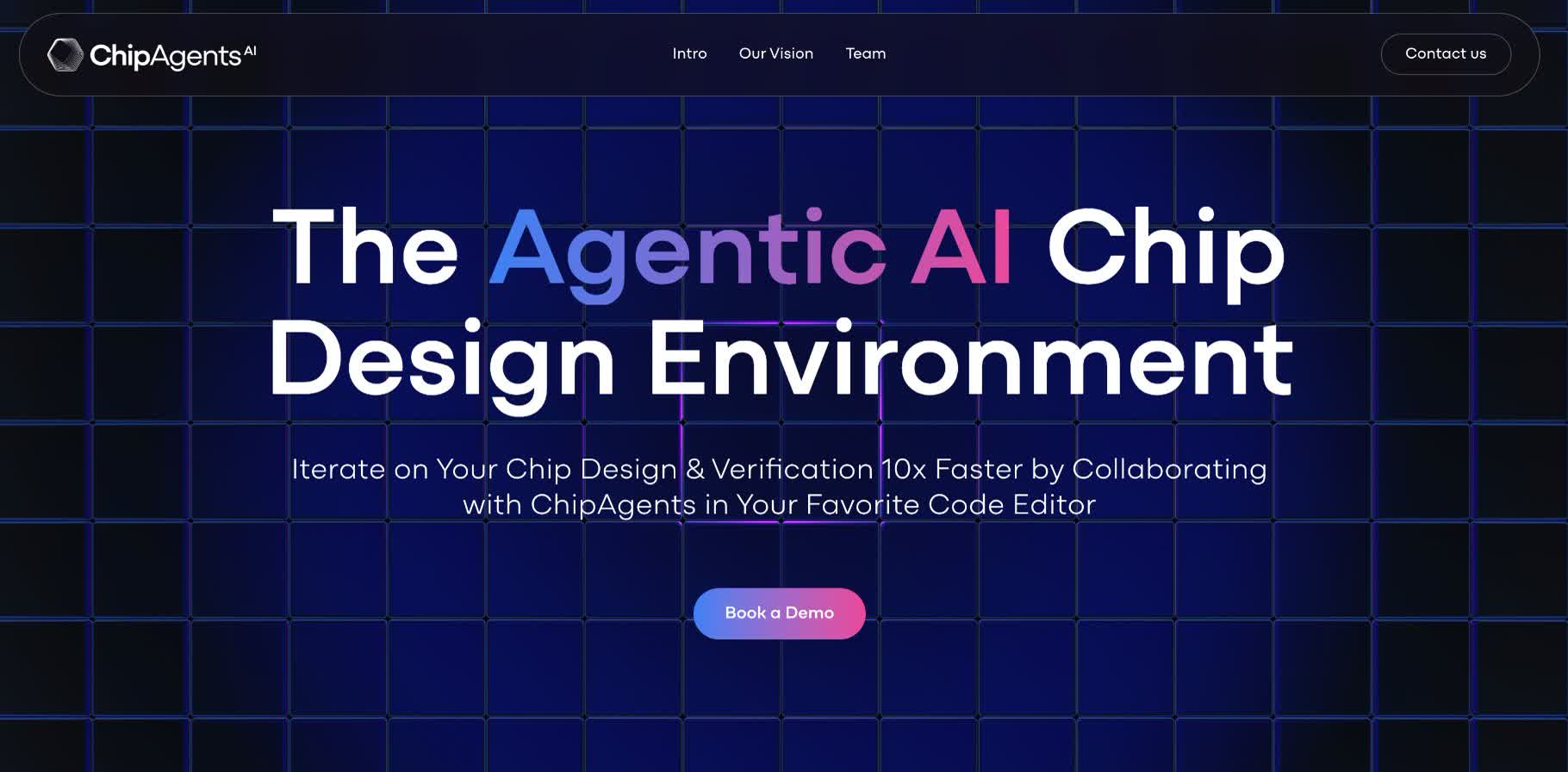In 2024, the semiconductor industry is at an exciting time, with Alpha Design AI announcing a new product called ChipAgents, which marks the first application of artificial intelligence in chip design and verification. ChipAgents is an AI agent designed to provide hardware engineers and semiconductor companies with a powerful assistant to accelerate RTL code verification, debugging, and design optimization workflows.
ChipAgents represent a major leap forward in chip design and verification technology, powered by advanced generative AI, a revolutionary AI agent that enables designers to tailor concepts to precise design specifications using simple verbal prompts. ChipAgents seamlessly analyzes and generates RTL design specs and code, automates Verilog, and automates the creation of test benches without tedious manual coding. With real-time simulation learning, it autonomously validates and debugs design code, ensuring thorough testing and top quality. By dramatically reducing design and verification cycles, ChipAgents accelerate time-to-market, cut development costs, and redefine productivity for semiconductor engineers and companies. With its collaborative approach to AI surrogate, ChipAgents will reshape the future of chip design and verification.
AI agents can also seamlessly integrate with existing EDA tools, providing full integration including RTL design and synthesis, physical implementation, physical verification, signoff, automated testing, process automation, and more, thus guaranteeing the quality and time-to-time of results throughout the process. This integrated approach enables AI agents to play a greater role in the entire design process, automating the entire system from design ideation to verification implementation. The use of AI in chip design is not limited to improving efficiency, but also includes optimizing designs, improving power, performance, and area (PPA), and driving innovation. AI can help design teams meet diverse needs without sacrificing performance and quality, and realize the reuse of knowledge in the design process to improve design efficiency.

Figure: The world's first AI agent for chip design is launched
The application of AI agents can not only improve design efficiency, but also help engineers focus on more valuable tasks. For example, Synopsys' DSO.ai tools use reinforcement learning to optimize the design space, allowing engineers to focus on more complex design decisions instead of tedious, repetitive tasks. Such AI tools are capable of exploring trillions of design options to achieve multiple complex goals within the performance, power, and area (PPA) goals of chip designs. In addition, AI agents can improve design quality by learning from historical projects, as they are able to retain and apply lessons learned from one project to future projects. This means that engineers can rely on AI agents to deliver validated design methodologies, reducing uncertainty and risk in the design process.
Alpha Design AI's leadership team is comprised of renowned experts in the field of AI and semiconductors, including Professor William Wang and Professor John Bowers of the University of California, Santa Barbara, who have deep research expertise and entrepreneurial experience in the field of AI and semiconductors. In addition, the company successfully raised more than $3 million in pre-seed funding to accelerate the development and deployment of its AI agent tool.
As AI technology continues to advance, it is expected that the chip design and verification industry will continue to undergo significant changes in the future. AI agents are expected to become an indispensable tool in chip design, providing engineers with a faster, smarter, and more scalable design approach. With the advancement of technology and the growth of downstream application demand, the global and Chinese advanced packaging market is expected to continue to expand, and the packaging industry will continue to develop in the direction of higher performance and miniaturization.






